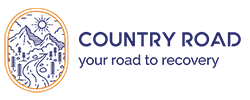You spent years on top of years working your way up the corporate ladder to get where you are now. Or maybe you’ve finished your degrees or higher education and just accepted a dream job. You're in the world of professional employment and no matter where you are in your career, it took a lot of work to get here. Despite all that work, or maybe even because of it, you now find yourself in the undesirable situation of dealing with substance abuse and trying to hold down a full time job. You may be thinking you want help but don’t know where to start. You may be convinced that going to treatment means losing your job and derailing all that you’ve worked for. At Country Road Recovery Center we are uniquely situated to help professionals and workers from all backgrounds find sobriety in a dignified manner that keeps your career intact.
Addiction Treatment for Professionals: What Does It Look Like?
Thirty years ago, treatment for drug and alcohol use addiction pretty much looked all the same. If you have a problem, you went away somewhere for thirty days, “got better” and then were shoved back into the real world with very little support or accountability. Thankfully, the substance abuse disorder treatment industry has evolved over time. This means facilities are better equipped to meet their clients wherever they are at and provide customized care. This is no longer a one-size-fits-all industry. For a working professional, addiction treatment could look like any number of things from a virtual intensive outpatient program, to a full-scale, long-term residential addiction program where your employer is on board with treatment because they value you and want to see you come back better. It really all depends on the level of care you require and your level of commitment. All treatment journeys start with a phone call to our admissions staff to get a better idea of where you are at. This phone call is protected under federal HIPPA guidelines which means no one, not even your employer can access it. It’s okay to ask for help!
Addiction Treatment for Professionals: The Levels of Care
There are currently seven levels, or types, of care when it comes to addiction treatment. While that may sound like a lot, the truth of the matter is most people do not go through all seven levels. By having so many options, Country Road Recovery Center is able to mix and match to create a tailored treatment plan for each individual client.
The first level of care is called virtual intensive outpatient and this is the most flexible level. You meet with clinicians over the computer from the comfort of your home for just two nights a week and once during the weekend. The second level of care is known simply as an outpatient level of care and this includes meeting in person a few times a week for an hour or so. If you have ever gone and seen a therapist in their office, that would be considered an outpatient level of care. The third level is known as intensive outpatient, and this also includes seeing a clinician in person — but usually for several days a week and for a more extended period of time during each visit. Typical intensive outpatient programs require three to five meetings per week with most meetings being two to three hours long. During all three of these levels, clients live on their own and commute to treatment. These three levels are each a type of outpatient care and are generally geared towards clients that do not require any medical stabilization or detox for their substance abuse disorder. A safe and stable home life is key for successful outpatient, as well.
The fourth level of care is known as partial hospitalization, or PHP. In PHP, clients commute back and forth from treatment, but their entire day is spent in different therapeutic settings: usually six to eight hours a day, Monday through Friday. The fifth level of care would be what most people think of when they think of drug or alcohol addiction treatment — residential addiction treatment. A client committed to residential addiction care goes to a substance abuse facility where they live, eat and get better 24 hours a day. Residential addiction treatment is the most common form of addiction treatment when addressing a serious drug or alcohol abuse disorder, but it may not be right for everyone.
The final two levels of care are extended care and aftercare. Technically, any amount of time longer than 30 days in residential care is considered extended care; but, there are some programs that specialize in long-term extended care and can offer treatment for up to a year. Aftercare is a specialized plan of support and accountability created by clinicians and case managers. Each aftercare plan is unique to the client and may include any or all of the initial four levels of care and/or alumni networks and community support groups.
Addiction Treatment for Professionals: How Do I Know What’s Right for Me?
So, which level of addiction treatment is appropriate for you? Typically, when working with professionals, we encourage working with their HR or Employee Assistance Program — although it is not required. These organizations are trained to help employees navigate finding treatment and to advocate on your behalf to your company. They can be a powerful ally to have in your corner if you’re concerned about losing your job.
Country Road Recovery also has great resources available to explain how to get addiction treatment and keep your job. Check out our other blog posts, and download our eBook here.
Once you’ve asked for help, involved the appropriate parties, and everyone has agreed on the best level of care for your long-term recovery, you can take a deep breath knowing that you’re not fighting this battle alone anymore. We are here to work with you, your schedule, your employer, and put you back on the road you always wanted for yourself. Treatment doesn’t have to mean the end of your professional life; usually it’s the beginning of the next — and better — chapter!


